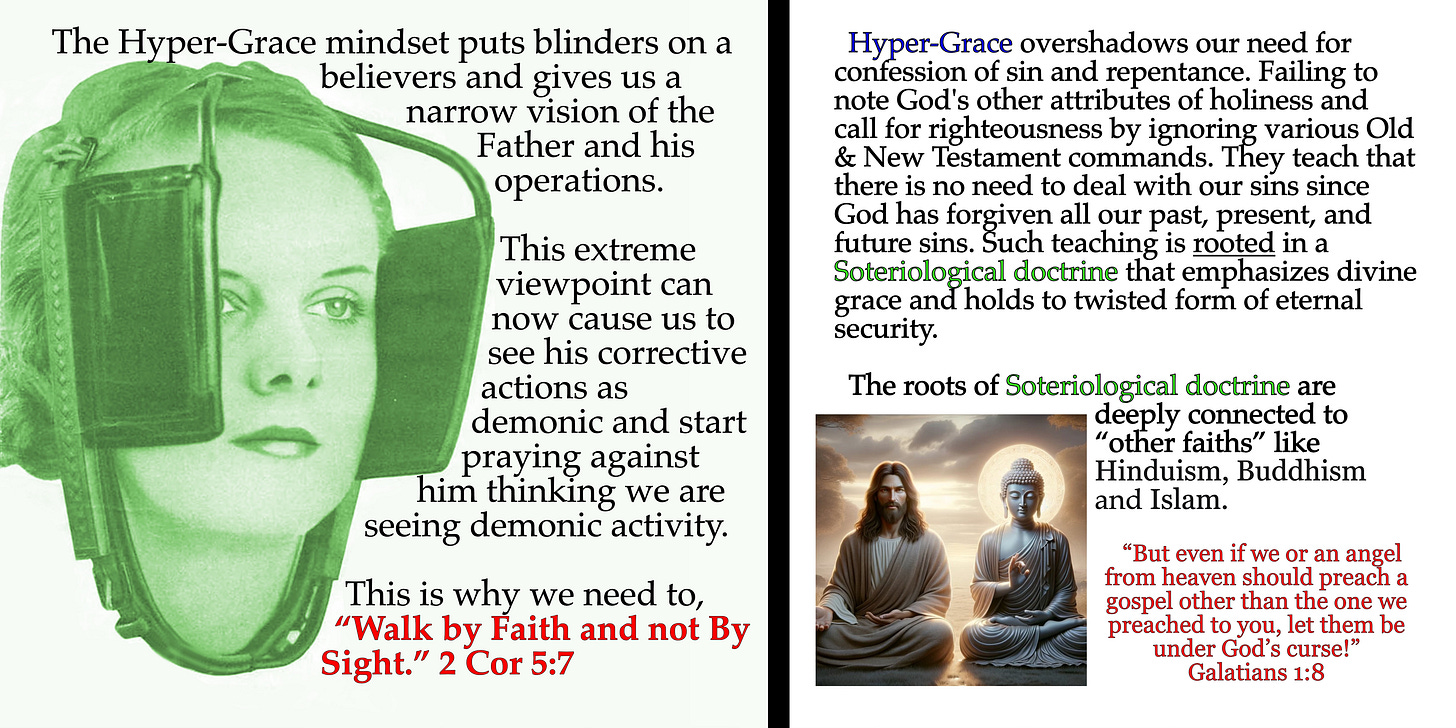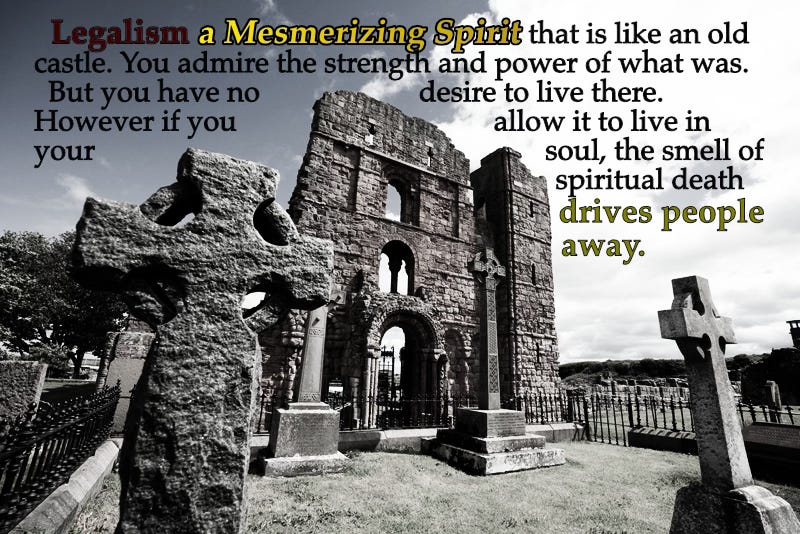The Calling, Part Two
The Road before you
“While they were ministering to the Lord and fasting, the Holy Spirit said, Set apart for Me Barnabas and Saul for the work to which I have called them.” Acts 13:2
Many years ago in the late 1980s, I was having an end-times discussion with somebody when I mentioned that the Lord is coming back for a pure spotless bride. This of course is connected to Revelation 19:7. The guy I was speaking with could not see how this could possibly happen, since it has never happened in history.
Later on, he came back after looking closely at the scripture and realized that such an act would need to be of God and not man. And then if it was prophesied in scripture, then it had to happen.
It’s interesting to me that if you started researching the issue, modern Judaism has kind of come to a similar conclusion. In their minds, the people are a mess, and the messiah will either come when all of Israel is perfect and holy or He will come when the nation is at its worst, fallen and sinful so that he can fix it.
The reality is the natural state of man is a mess, even in our congregations. The big difference is we can just be a little better at hiding it. When God sets people apart, he starts to draw them away. I suspect many people have been confused by the process, and as a result, have fought against it. This has often delayed or extended the process.
Factors
Because of the historical shadows of Catholicism that have influenced the Protestant movement. Many of our practices have been changed, altered, or completely crushed under the un-holy priest/laity concepts.
In such environments, the act of setting people apart can be a drawn-out drama filled with pomp and show. This dog and pony show has not only laid the foundations of bad thinking. But it has taken something that was meant to be simple and Holy and filled it sometimes with hidden layers of occultic symbolism.
What do I mean by that?
With the rise of television, there is hardly a person in the Western world who has not seen a Pope put into office. These demonstrations I will say are designed for show and spectacle, not God. If you watch carefully, you will find deep symbolism in the clothing, things they hold, and more connecting many of the ancient, pre-Christian gods of the past to these rituals. So much so, that if you understand some of the history, it’s no wonder that the people of God in the early centuries were against Catholic authority, claiming it was a cult.
Now this thinking of course, because of television, has slowly been slipping into the corners of many Protestant denominations. Slowly influencing the process of setting someone apart for ministry. This influence is because we are still mostly flesh-centered and not spirit-centered. We WANT the pomp and prestige in our services so leadership has found ways to slip it in. In effect, leadership has given us what we wanted.
Other factors that get in the way are often personal. There is a lot of things we still like and are attracted to. Now that does not mean that being set apart requires a person to go live in a cave. But it may mean a simple lifestyle, uncomplicated by the world and its influences.
As the Lord starts to draw you away, choices will be made and as long as you continue to make the Lord first other things will fall by the wayside. These choices are often centered right at core issues like people pleasing, right and wrong choices, whom you interact with, self-worth, and more. In doing so a refinement process is taking place, drawing forth the maturity of the seeds He planted in your life for Holiness & Righteousness.
Because of this, something powerful soon starts to happen around you. Misunderstandings by other people concerning your actions often result in pain and loss within your heart. This loss is manifested in relationships that are now broken.
People will have their reasons and will justify them in their own mind. But you will carry the burden of the knowledge of why it had to end. That pain will shape you, and if you work with the Lord through the process it will change you into a different person. Failure to work with the Lord will only result in a defeated, resentful soul and a hard heart.
In reality, what is taking place is the road you are walking on has turned or become more narrow and those who were next to you can not walk where you are going. It is no falt of them, they were simply not ready. In these moments you can now identify with, and understand some of the prophecies spoken about Jesus, “…A man of sorrows and acquainted with grief…” Isaiah 53:3. A word of advice, don’t dwell in the pool of “what if?” too long. It will only prolong the journey and the pain.
You see, you are becoming a different person, your old friends will not understand that. They may try to help, but in reality, all they are trying to do is “fix you” so that you will return to what you once were. I know when we returned from South Carolina and lived for a time at a friend’s house in Wyoming they did not understand. All our conversations in time eventually degraded into awkward silence. They did not understand the change, and we were still too new to the pain to understand it ourselves.
So what does it mean to be Set apart, to be Consecrated?
The primary word in the Old Testament for Consecrated is Qadash and it has many layers. A quick definition would be, “Consecration is the transfer of a person or a thing to the sacred duties for a special purpose or service.” This word, consecration literally means "association with the sacred.” Yet even in that simple definition is the reality that there is more within if you lift the curtain and take a closer look.
One of the quickest things you will discover if you do a biblical word search is that in Israel you could consecrate many things. People, land, cities, various items, and even animals. By doing so, these things were taken out of public or common use and given as something unto the Lord.
In modern churches there is often a ceremony, sometimes very elaborate that has shadows of Catholicism enwrapped around it, even in mainline evangelical lines.
But in the Old Testament, this was not the case, let’s take a closer look. “Moses then took the anointing oil and anointed the tabernacle and everything that was in it, and consecrated them. He also sprinkled some of it on the altar seven times and anointed the altar and all its utensils, and the basin and its stand, to consecrate them. Then he poured some of the anointing oil on Aaron’s head and anointed him, to consecrate him. Next Moses had Aaron’s sons come near, and he clothed them with tunics and wrapped their waists with sashes, and bound caps on them, just as the LORD had commanded Moses.” Leviticus 8:10-13
In this scripture, we see only two things that were required. One was the application of oil, the second was it was by the Lord's command. The application of oil does many things from a health standpoint, from calming to healing. But it is more the symbology of this act that is important.
Oil has always represented the Holy Spirit, and by this simple act, one could argue that these items and people were “sealed” with God’s symbol in the spiritual realm. They were now marked as the property of God. But oil has another component to it. It’s often warm, it conforms and sticks to you and it can leave a fragrance that continues to linger for long periods of time. In other words, oil is intimate and by its nature, it is symbolic of a personal relationship.
With Consecration comes friendship, a spiritual-union relationship with the Trinity. In some ways, you could look at consecration like a sealed contract, like a marriage contract that will never change.
The term “association with the sacred,” is the key part. This implies, especially I feel in the New Testament concepts of a close and growing connection with the Trinity. This is why we need to be slow with laying on of hands as we need to be observant with watching how future leaders conduct their lives before God.
Some people do not understand why we need to be slow with this act. The reason can best be explained this way. What good is it to consecrate the body to the Lord if the heart continues to willingly defile the inside?
We need to understand that such people are often singled out years before by the Holy Spirit in some way even if the person themselves does not recognise it.
Areas of Refinement
The Hyper-Grace mindset is a form of lawlessness that wears fancy clothes. Most people assume such people are just super-loving. These people are not grounded in the basic Christian teachings of who Jesus is, repentance, salvation, and blood atonement.
Legalism hyperdrives the issues that Hyper-grace ignores and takes them far beyond what God intended. This is not any different from the Pharisees of Jesus's time fixation on cleanliness. Can a person get free from this? The Apostle Paul did, but consider what the Lord put him through to make that happen.
The Road
Your road will include refinement from these issues and more. In this unending process, the people involved in these areas will not understand your actions. Although this road will feel extremely narrow at times, you will understand the new grace you have to do things that baffle others. This is why the teachers of old could not understand Jesus's actions toward tax collectors and prostitutes. (Matthew 9:10-17, Mark 2:15-22, Luke 5:29-39)
You are now learning to rest in His Spirit as old things are taken away (Matthew 11:28–30) and you are being made new.
Next week, “Before You Now”








Brilliant thank you!